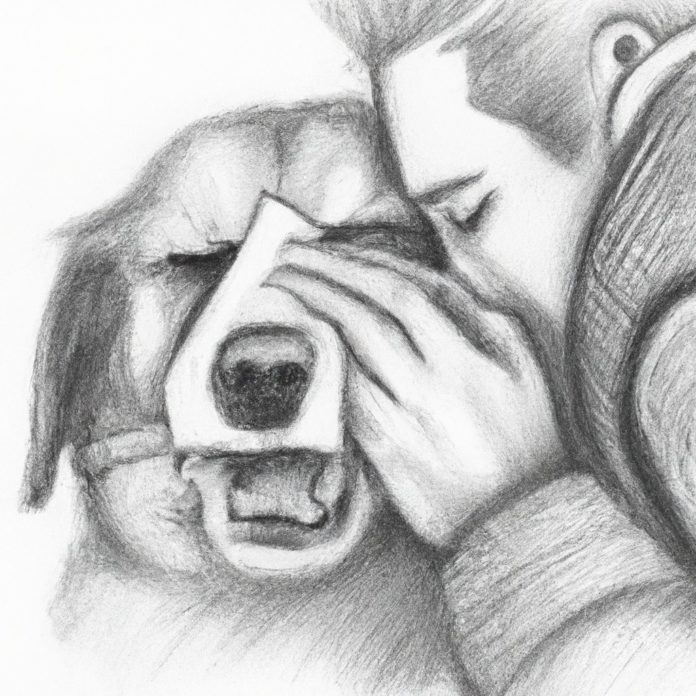Dear VetBabble, Can My Dog Get a Cold from Me?
As pet owners, we love our furry companions and want the best for them in terms of health and wellbeing. With this in mind, we often become concerned when we are sick, and wonder whether our dogs can catch colds from us. The answer is quite reassuring: it is not likely that your dog will get a cold from you, as the viruses responsible for causing colds are species-specific. However, this doesn’t mean that your dog won’t develop respiratory issues that resemble a cold. In this article, we will delve into the causes of coughing and sneezing in dogs, symptoms to watch for, and possible treatment options.
Causes of Coughing and Sneezing in Dogs
While dogs cannot catch a cold from humans, there are various reasons as to why a dog might display symptoms similar to a cold. These might include infectious diseases, allergies, and other respiratory ailments. To better understand the cause of your dog’s symptoms, let’s examine some common illnesses:
- Canine Cough (Kennel Cough): This is a highly contagious respiratory disease in dogs, caused by a combination of bacteria and viruses. Bordetella bronchiseptica is a common bacteria involved in kennel cough. For more information, check out this article on how to treat and prevent kennel cough in dogs.
- Dog Allergies: Dogs can suffer from allergies just like humans. Allergic reactions can lead to sneezing, coughing, and nasal discharge. If you suspect your dog may have allergies, consult our article on dog allergies.
- Other Respiratory Infections: Dogs can still develop respiratory infections that are unrelated to human cold viruses. For a comprehensive guide to coughing in dogs, visit our article on coughing in dogs: types, diagnoses, and treatment.
Recognizing and Treating Respiratory Issues in Dogs
When it comes to identifying respiratory problems in dogs, it is crucial to monitor your pet closely for symptoms and seek veterinary assistance if needed. Here are some signs and symptoms to watch for:
- Coughing
- Sneezing
- Nasal discharge
- Difficulty breathing
- Wheezing
- Fever
- Lethargy
- Loss of appetite
If your dog is displaying any of these symptoms, it’s essential to consult with a veterinarian. They will be able to provide an accurate diagnosis and treatment plan that targets the underlying cause of the issue.
Treatment options for respiratory issues in dogs will vary depending on the cause. For kennel cough, antibiotics may be prescribed to help fight off the bacteria, along with supportive care to ensure your dog stays hydrated and comfortable. For dog allergies, treatment may include antihistamines, corticosteroids, or other medications aimed at reducing inflammation and managing symptoms. In the case of other respiratory infections, treatment may range from antibiotics to supportive care, depending on the specific disease and its severity.
Preventing Respiratory Issues in Dogs
While it is not possible to completely eliminate the risk of respiratory issues in dogs, there are certain measures you can take to minimize their chances of developing such problems:
- Vaccinations: Keep your dog up-to-date on their vaccinations to help protect them against many respiratory ailments.
- Regular Vet Checkups: Regular checkups with a veterinarian can help detect early signs of illness and provide prompt treatment if needed.
- Maintain a Clean Environment: Keeping your home clean and free of allergens can help reduce your dog’s exposure to potential irritants.
- Avoid Crowded Dog Spaces: Avoid dog parks, kennels, and other crowded dog spaces where respiratory diseases are more likely to spread.
In conclusion, it’s unlikely that your dog will catch a cold from you. Nonetheless, it’s always important to monitor their health closely, especially when displaying symptoms similar to those of a cold. Be vigilant about recognizing signs of respiratory issues, seek veterinary care when needed, and follow preventative measures to ensure your dog remains happy and healthy.









